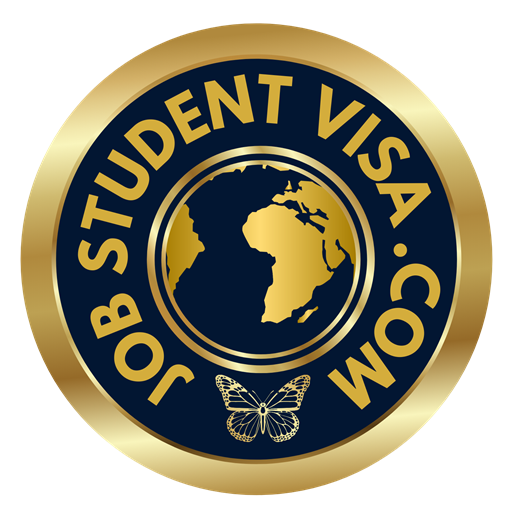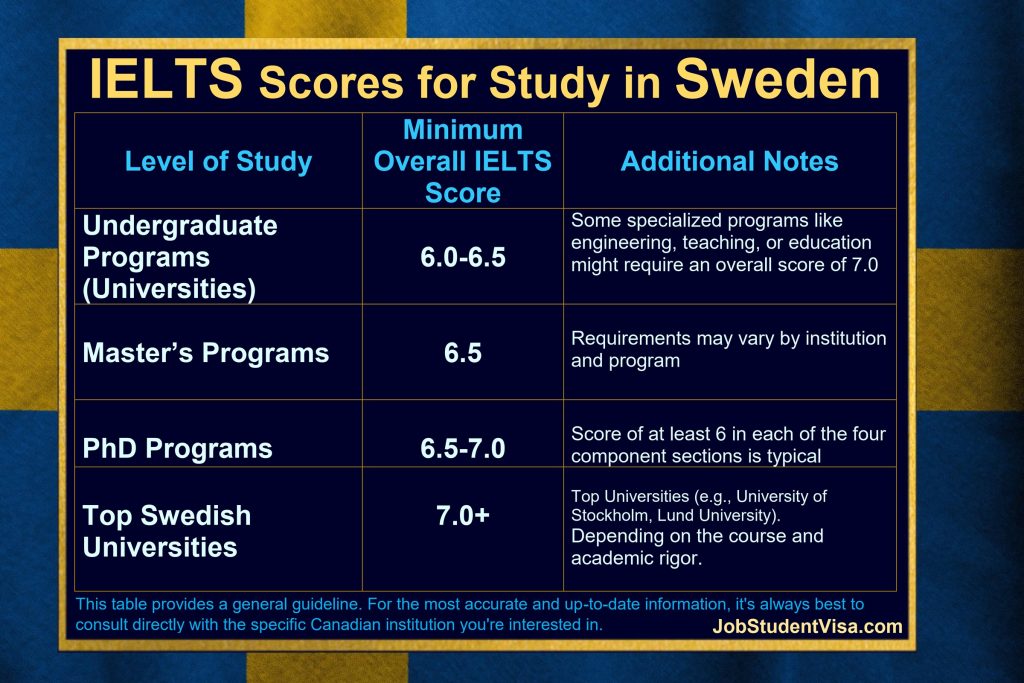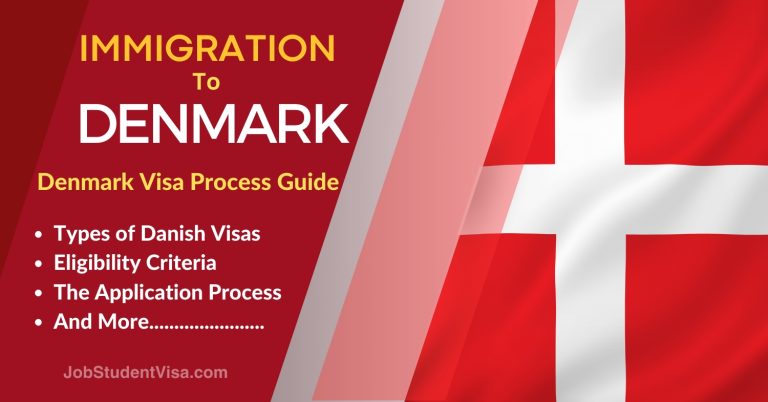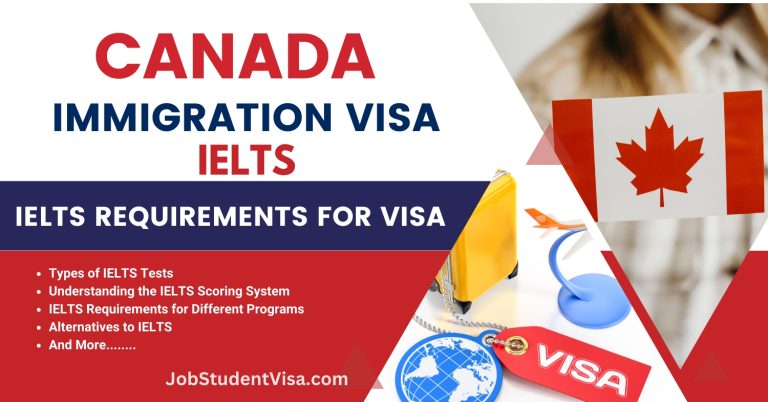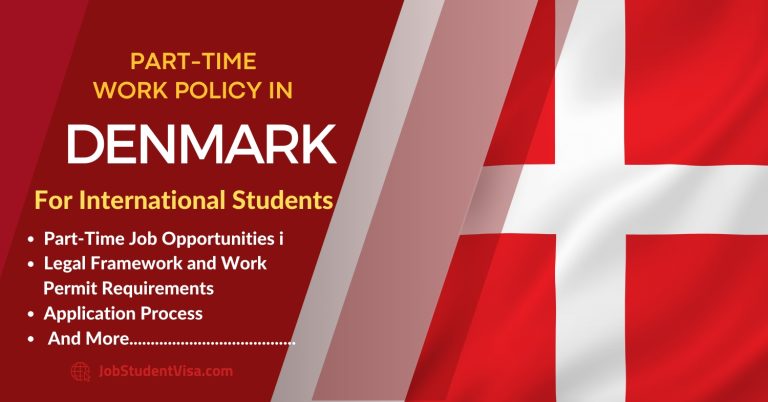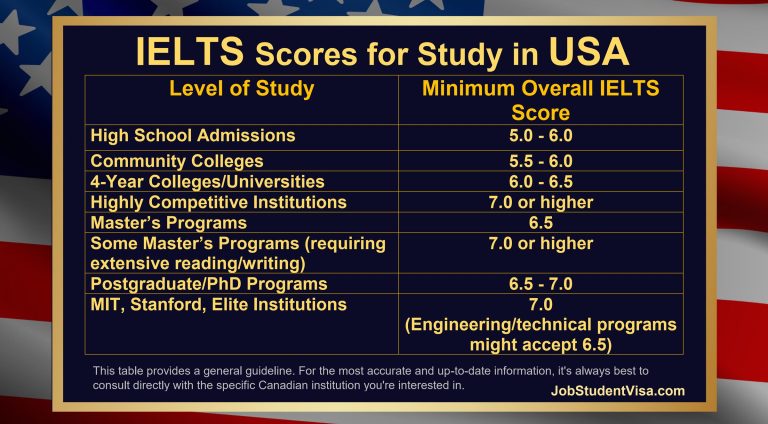IELTS Score Requirements for Study in Sweden and Guidelines
Minimum IELTS Scores for Education in Sweden: A Comprehensive Guide
Sweden, known for its innovative and research-driven education system, attracts a significant number of international students. For those whose primary language is not English, demonstrating proficiency in English is crucial. The International English Language Testing System (IELTS) is widely accepted in Sweden as a measure of English language ability. It evaluates candidates’ skills in listening, reading, writing, and speaking.
Studying in Sweden offers a unique and enriching experience for international students, known for its high-quality education, innovative learning environment, and cultural diversity. For individuals aspiring to pursue academic opportunities in Sweden, understanding the language proficiency requirements is crucial. While the country’s educational institutions primarily use the Swedish language, many programs are also offered in English, necessitating proof of language proficiency for admission.
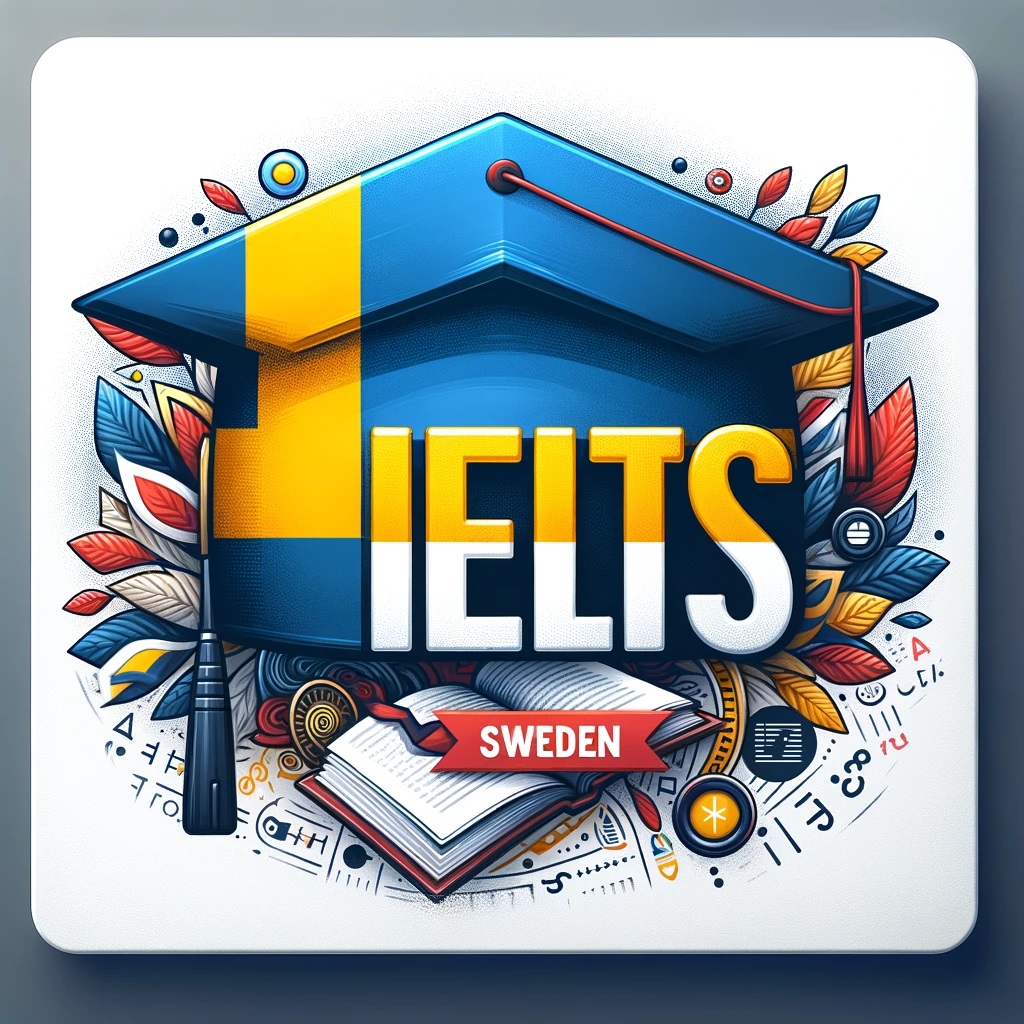
IELTS for University Admissions in Sweden
- Undergraduate Programs: Swedish universities generally require a minimum IELTS score of 6.0 to 6.5 for admission into bachelor’s programs. This ensures students have the necessary English language skills for academic studies, which often involve extensive reading, writing, and active participation in discussions.
- Program-Specific Requirements: Some courses, especially in areas like humanities, law, and business, might demand higher IELTS scores due to the intensive language use in these disciplines.
IELTS for Postgraduate Studies in Sweden
- Master’s Programs: For master’s programs, the required IELTS score is typically around 6.5, acknowledging the need for a higher level of English proficiency for advanced academic work, research, and thesis writing.
- PhD Programs: For doctoral studies, the IELTS requirement can vary, but a score in the range of 6.5 to 7.0 is common, especially for research-intensive programs that involve publishing and presenting in English.
IELTS for Vocational and Professional Education
- Vocational Training: In Sweden, vocational and professional education programs may have slightly lower IELTS requirements, typically around 5.5 to 6.0, as these programs might focus more on practical skills than on academic language proficiency.
English Proficiency in Swedish Higher Education
- Top Swedish Universities: Prestigious institutions like the University of Stockholm, Lund University, and KTH Royal Institute of Technology often set their IELTS requirements at the higher end (6.5 or above) to maintain high academic standards.
- Specialized Courses: Certain specialized courses, particularly at the postgraduate level, might have more stringent IELTS requirements.
Factors Influencing IELTS Requirements in Sweden
- Program Competitiveness: More competitive programs and universities often have higher IELTS score requirements.
- Field of Study: Courses that heavily rely on English, such as international studies, English literature, and journalism, often require higher IELTS scores.
- Institutional Policies: Each educational institution in Sweden sets its own IELTS requirements based on its specific academic standards and language proficiency expectations.
IELTS Score Requirements for Education in Sweden Table
Here’s a table summarizing the minimum IELTS scores typically required for various levels of education in Sweden, including specific requirements for some of the top universities:
| Educational Level | Typical Minimum IELTS Score | Notes / Top Universities Requirements |
|---|---|---|
| Undergraduate Programs (Universities) | 6.0 – 6.5 | Higher scores may be required for certain fields. |
| Master’s Programs | 6.5 | Research-intensive programs may require higher scores. |
| PhD Programs | 6.5 – 7.0 | Depending on the research focus and requirements. |
| Vocational and Professional Education | 5.5 – 6.0 | Focused on practical skills rather than academic language. |
| Top Swedish Universities (e.g., University of Stockholm, Lund University) | 6.5 – 7.0 | Depending on the course and academic rigor. |
| Specialized/Competitive Programs | 7.0+ | Particularly for fields requiring high language proficiency. |
This table provides a general overview. Actual requirements can vary between different institutions and specific programs. Prospective students should always check the exact requirements of the program and university they are interested in. Additionally, some programs might accept other forms of English proficiency proof or have different requirements for students from specific countries.
Language Proficiency and IELTS Requirements for Student Visas in Sweden
When aspiring to study abroad, navigating the visa application process is crucial. For students considering Sweden as their educational destination, understanding the language proficiency requirements for obtaining a student visa is paramount. Unlike some countries, Sweden’s approach to language proficiency for visa applications varies based on the language of instruction in university programs.
Language Requirements for Swedish-Taught Programs:
For programs conducted in Swedish, universities may necessitate evidence of proficiency in the Swedish language. Tests such as the Test in Swedish for University Studies (TISUS) or other recognized Swedish language exams might be required. Applicants are typically expected to display a certain level of proficiency to ensure they can adequately engage with coursework and communicate effectively in an academic setting.
Language Requirements for English-Taught Programs:
For courses taught in English, universities might demand proof of English proficiency. While the International English Language Testing System (IELTS) is a widely accepted test, other assessments like TOEFL or Cambridge English exams might also fulfill this requirement. Some educational institutions may exempt applicants from demonstrating English proficiency if their prior education was conducted in English.
Visa Application Process:
For obtaining a student visa in Sweden, typically you must provide evidence of proficiency in English, as English is the language of instruction for many academic programs. Accepted proof includes a variety of English language tests such as IELTS, TOEFL, PTE, or Cambridge ESOL. The required scores can differ based on the university or specific program applied for. Therefore, it’s important to consult the particular university’s requirements or the Swedish Migration Agency to ensure all language prerequisites are adequately met.
Advisory for Prospective Students:
Prospective students planning to pursue education in Sweden should thoroughly research the language requirements of their chosen program. It is advisable to consult the respective university’s website or contact the admissions office to confirm the exact language proficiency prerequisites.
Is the IELTS Score is Mandatory for Student Visa in Sweden?
Yes, proving English proficiency is typically required for a student visa in Sweden, as most higher education programs are taught in English. Applicants can demonstrate this through various accepted tests like IELTS, TOEFL, PTE, or Cambridge ESOL. The exact score requirements might vary depending on the institution or program of study. It’s crucial for prospective students to verify the specific language requirements from the individual university or the Swedish Migration Agency to ensure they meet all necessary criteria for their visa application
In Sweden, IELTS scores are an essential part of the admissions process for international students. Achieving a strong IELTS score is crucial not only for meeting admission criteria but also for ensuring academic success in an English-speaking environment. This is particularly important for higher education programs and top universities, where the level of English proficiency expected is relatively high. Therefore, adequate preparation for the IELTS test is a critical step for students aiming to study in Sweden.
